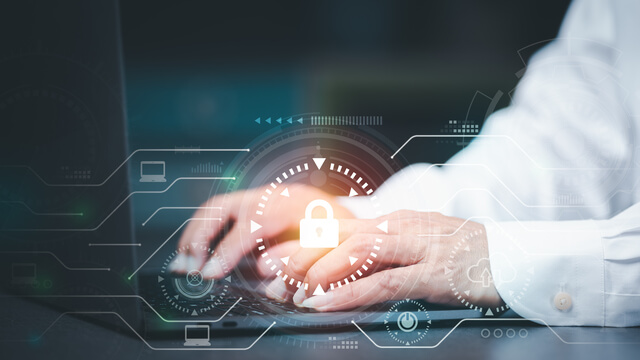
With technology constantly evolving, we must always keep up with the ways to ensure that our sensitive information stays safe online. It is crucial to stay secure online to avoid cybercrime, preserve and protect our privacy, and safeguard financial assets.
Every day, people use the Internet to browse social media and access bank, medical, and government websites, among others. Most of the websites and applications require some of your personal information so you can use them. This is why cybersecurity is vital.
First, your personal information is valuable. From financial details to social media profiles, a significant amount of your personal information is stored online. Therefore, your data is always at risk for cybercrimes and other malicious activities, especially if you aren’t careful.
Moreover, your financial assets can be at stake. Gone are the days when cash was the main mode of payment. Many people like the convenience of doing everything on their phones, including financial transactions. Despite the convenience, when you use these online financial systems, you are also exposing your financial assets to security risks. Hence, you must adopt online security practices to avoid being a victim of unauthorised access and fraudulent activities. Only use trusted platforms, regularly update your software, and be vigilant and up-to-date about potential scams.
As technology evolves every day, so do the security concerns that come with each advancement. You must then do your part in protecting yourself from cyberattacks and other security dangers.
Cybercrime
Cybercriminals and others with malicious intent are notorious for exploiting vulnerable individuals through cybercrime. Their tactics include hacking, phishing, and smishing. Therefore, falling victim to cybercrimes can result in financial loss, data breach, identity theft, and other reputational and often irreversible damage.
Data Breaches
A data breach is a dangerous and costly security issue that happens when cybercriminals gain access to sensitive data they’re not supposed to have access to. The sensitive data is often sold on the dark web, and malicious people use them for identity theft and other criminal activities. Need another reason why you need to be vigilant of data breaches? Know that this cybercrime does not only affect individuals – they affect organisations and national security as well. For instance, a study shows that a single incident of healthcare data breach can cost an organisation 10 million dollars upwards each time. On the other hand, if companies are reported to have suffered from a data breach, 21% of their consumers stop using their services. Moreover, 42% of users subsequently request providers to delete their information.
Viruses, worms, trojans, and other ransomware pose significant threats to your sensitive information. Cybercriminals use malware to infect devices, disrupt daily operations, steal data, or lock systems until victims pay a ransom. How can you avoid malware and virus attacks? One way is to always update your antivirus software to minimise the risks of being attacked by these disabling and malicious softwares.
Phishing often happens through fraudulent emails, websites, or text messages. The attacks may be one of the simplest cybercrimes, but many people still fall for them.
Social engineering involves manipulating individuals and exploiting human vulnerabilities into divulging sensitive information or performing certain actions. Cybercriminals do this using psychological manipulation, impersonation, or deceit. Victims may be bombarded with false alarms and unnecessary threats, baited with false promises, or be specifically targeted by cybercriminals. Hence, it is necessary to be wary of unsolicited requests for personal information or suspicious attempts to gain trust.
The digital world is a risky place to stay in. However, you can still enjoy your daily online activities as long as you are doing your due diligence to remain secure online. Protect your data online by doing the following:
Strong passwords prevent cybercriminals from accessing your data online. It is also wiser to use varying passwords for your accounts and to avoid reusing them. Strong passwords must contain the following:
Not satisfied with your traditional password? Try using a passphrase. A passphrase is longer and more secure compared to the traditional password. It consists of a long string of words, much like a phrase. Moreover, it’s easier to remember phrases that you are familiar with compared to a password with random numbers and capitalisation. Passphrases also involve a mix of multiple words and characters. Hence, you will also be more protected from keyloggers because keyloggers often struggle to capture the sequence accurately.
These days, using a strong and unique password may no longer be enough. Consider enabling two-factor authentication on your device and accounts. Two-factor authentication is considered an additional layer of security or protection for your data. It requires you to provide a second form of verification, such as a unique code.
Is someone urging you via email to click a link or visit a website? Always double-check email addresses and the content of suspicious emails that you receive. Look for spelling errors or inconsistencies, and don’t provide personal information or login credentials through email or unfamiliar websites. In addition, refrain from clicking on suspicious links or downloading files from untrusted sources. Always verify the authenticity of your emails or messages, especially if they request sensitive information.
Limit the personal details you provide on your social media platforms and regularly review your privacy settings. It is your responsibility to practise vigilance and caution when it comes to managing your security posture online.
It takes a combination of robust security measures, user awareness, and efforts to stay ahead of emerging threats. You can still enjoy the benefits of technology without compromising your security. Find out more about how you can safeguard your presence online with any of our cybersecurity courses here.
© All Rights Reserved | Website By Onigeeks & Miron Digital

© All Rights Reserved | Website By Onigeeks